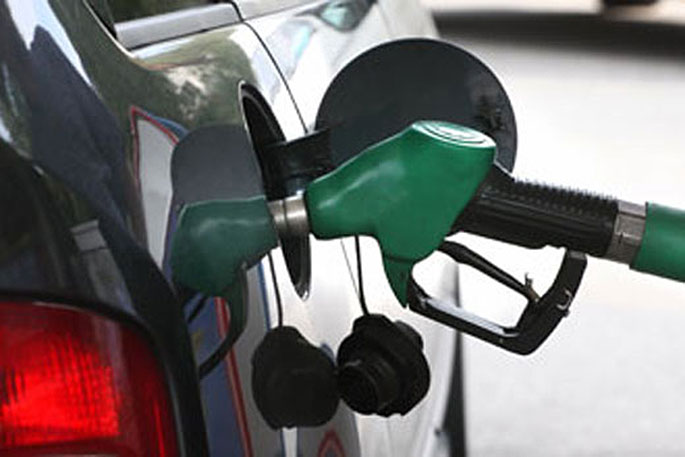Petrol prices are near all-time highs after a brief dip over the holiday period, and could be headed for $3 this year.
According to fuel price app Gaspy, the price of 91 octane petrol reached an all-time average high of $2.527 on Saturday after a short hiatus over the Christmas break.
On Tuesday, 91 petrol was at $2.52, 7c higher than 28 days ago. Other fuel prices were also on the rise, with the average price of 95 petrol up 12c at $2.694, 98 petrol up 13c at $2.788, and diesel up 9c at $1.758.
The five cheapest places to buy 91 petrol were all in Manawatū-Wanganui, costing between $2.307 and $2.337, according to Gaspy.
In December the Automobile Association (AA) called on fuel companies to reduce the price of petrol, as it believed their margins were too high, AA principal policy adviser Terry Collins says.
Fuel companies had dropped the price by about 5c a litre by the first week of January, despite a 10c increase in the cost of landed fuel, Collins says.
Margins had reduced to an estimated 14c a litre, he said, but fuel companies could not keep absorbing high import prices.
The key factors determining moves in the price of fuel in New Zealand were the duties and taxes applied domestically, and international prices, he says.
On top of excise duty of 70c a litre of 91 petrol, 6c a litre goes to the ACC Motor Vehicle Account, 0.66c in local authorities fuel tax, and 0.6c in petroleum or engine fuels monitoring levy, totalling just over 77c a litre according to the Ministry of Business, Innovation and Employment.
The rising price of carbon was also a factor in local levies, with the Emissions Trading Scheme portion jumping from 9c a litre in the past year to about 15c a litre, Collins says, 'and that's only ever going to go upwards”.
Internationally, there had been a 'huge” reduction in oil exploration and production, as the world began shifting to more renewable fuels. But, the vast majority of New Zealand's vehicle fleet still ran on some form of hydrocarbons, and would do for years to come, Collins says
'The world's economy requires cheap energy, so that's going to be a bit of a challenge. And I think the days of cheap oil long term are over.”
After the pandemic hit in 2020, the international price of oil fell below $0 as demand collapsed, and petrol prices fell 12 per cent in New Zealand.
The price of 91 octane petrol was $1.83 a litre during the June 2020 quarter, a nearly three-year low.
But the price of fuel had recovered and was trending upwards, although there would be some dips.
'It's very hard to predict – if I could, I'd win Lotto – but I see at the end of the year prices being more than they are now. By what margin it's hard to pick, but I'd say there's going to be a slow and steady climb towards $3 a litre over the next few years as the norm.”
There was a chance fuel could hit $3 this year, but that was tied up with geopolitical issues, on top of any developments with Covid-19.
"If Russia was to invade Ukraine, I could see it going to $3 very quickly because basically they're a huge energy exporter.”
If tensions between China and Taiwan escalated, that could also affect the price of fuel, he says.
Petrol prices were historically high, even once inflation was taken into account.
According to a briefing note for MPs in 2000, the price of regular petrol was 12.3c a litre in 1974. That was equivalent to $1.13 a litre in today's money, according to the Reserve Bank's inflation calculator.
The price in 2000 of 97c a litre was equivalent to $1.34 a litre in current prices.
Adjusting for inflation effects, the current price of $2.52 a litre was equivalent to $1.76 a litre in 2000 dollars, and 26c in 1974 dollars. Both those estimates were higher than the price at the time.
A number of global oil crises in the 1970s resulted in severe supply problems and price rises, and in New Zealand, "carless days".
The initial oil shock created fundamental changes to economies which relied heavily on cheap oil, but Collins does not see the same impact today with the global growth of fuel efficiency.
The AA advised vehicle buyers to look at the total cost of ownership and buy the most fuel-efficient or cleanest vehicle they could afford. Even if the ticket price was higher, fuel savings could offset that, Collins says.
'If you can't afford it then you are stuck, and there's a large sector of our community that can't afford to replace their cars currently on a regular basis.”
Kiwibank chief economist Jarrod Kerr says petrol price rises are a frustration, and cut into discretionary spending.
'I always think of rising petrol prices as an extra tax, an unsavoury and unwelcome tax on our pay cheques.
'It hurts poor families more than wealthier families, so is inequitable.”
Petrol prices had added to the country's strong inflation in the second half of last year. Kerr expected oil prices to remain high this year but said they were unlikely to increase significantly.



3 comments
Expect $3
Posted on 20-01-2022 10:40 | By jed
Global economic demand look likely to push oil prices higher such that I believe we will likely see $3/litre sometime this year.
I Thought
Posted on 20-01-2022 11:31 | By Yadick
Jacinda, like the firearms, had stated she was going to keep this under control?
petrol
Posted on 20-01-2022 13:06 | By dumbkof2
jacinda andco not worried more money for them
Leave a Comment
You must be logged in to make a comment.